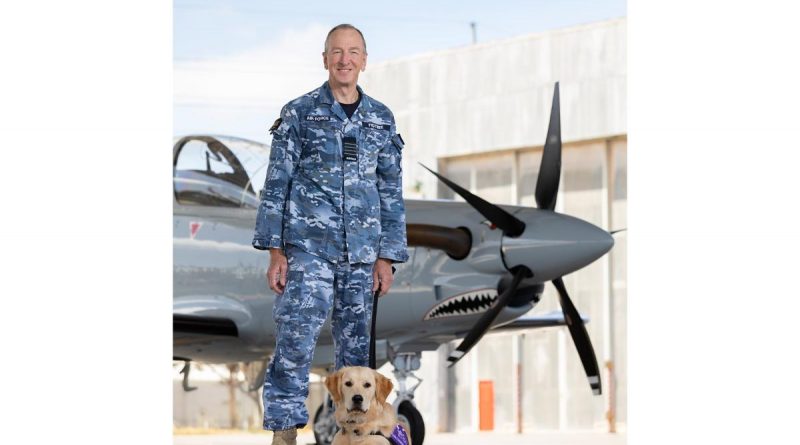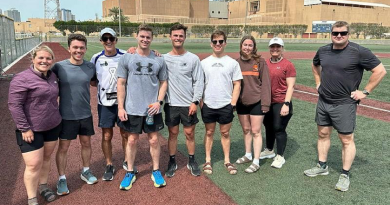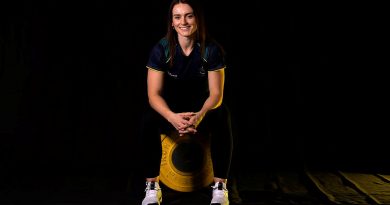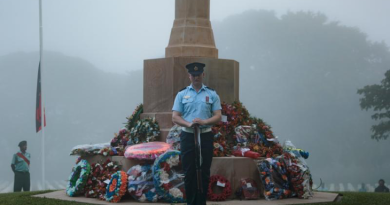Guide dog Roman visits RAAF Base Edinburgh

Roman, a golden retriever guide dog puppy, was a welcome sight at the Air Warfare Centre at RAAF Base Edinburgh recently.
CAPTION: Group Captain Andrew Figtree, Director – Test and Evaluation Directorate with trainee guide dog ‘Roman’, on the Aircraft Research and Development Unit flight line, at RAAF Base Edinburgh. Story by Leading Aircraftwoman Jasna McFeeters. Photo by Leading Aircraftman Stewart Gould.
Group Captain Andrew Figtree is an emergency boarder with the Royal Society for the Blind (RSB) and occasionally looks after trainee guide dog and assistance dog puppies when educators are away from home.
“There are over three hundred volunteers across the RSB program. I’d encourage anyone to get involved as a volunteer, it’s a rewarding experience to see assistance dogs graduating and on their way to changing someone’s life for the better,” Group Captain Figtree said.
“My wife Teresa and I take Roman out to cafes, restaurants, grocery shopping, Bunnings and lastly I bring him to work because I am keen to widen the spectrum of his experience. These experiences will only make him a better guide dog or assistance dog when he completes his training.
“It’s a bit different when Roman comes to work with me at the Air Warfare Centre. I have to make sure he’s had a bit of exercise, water and toilet because he comes to meetings with me, he has to be patient and quiet.”
Up to sixty puppies are born in the breeding program annually but only nine graduated this year.
Puppy educators take in the puppies at nine-weeks and they stay with them for twelve to eighteen months prior to commencing full-time guide dog or assistance dog training.
“You have to tailor the experiences you are giving to the dog around the personality of the dog, gradually introducing them to new experiences,” he said.
“If you have an active dog, you can take the assistance dog puppies to Rundle Mall in the middle of the Christmas rush to help them learn to be calm and settled in a busy environment.”
Depending on their maturity, somewhere between 18-24 months, they go through an intensive four-to-six month training program where they are dropped off at the advanced training facility before 9:00am and picked up before 6:00pm every week day. Upon successful graduation they are paired with a sight-impaired person.
“It is important to introduce the dog to a wide range of scenarios as they offer support not only to blind or vision impaired persons, but also to Veterans with Post-Traumatic-Stress-Disorder (PTSD) as part of Op K9,” Group Captain Figtree said.
“This program started in 2013 and has seen a significant reduction in suicidal trends and helped their owners to better integrate into society and live a more complete life.”
I’d encourage anyone to get involved as a volunteer. It’s a rewarding experience to see guide dogs and assistance dogs graduating and on their way to changing someone’s life for the better.” he said.
.
.

.
.





